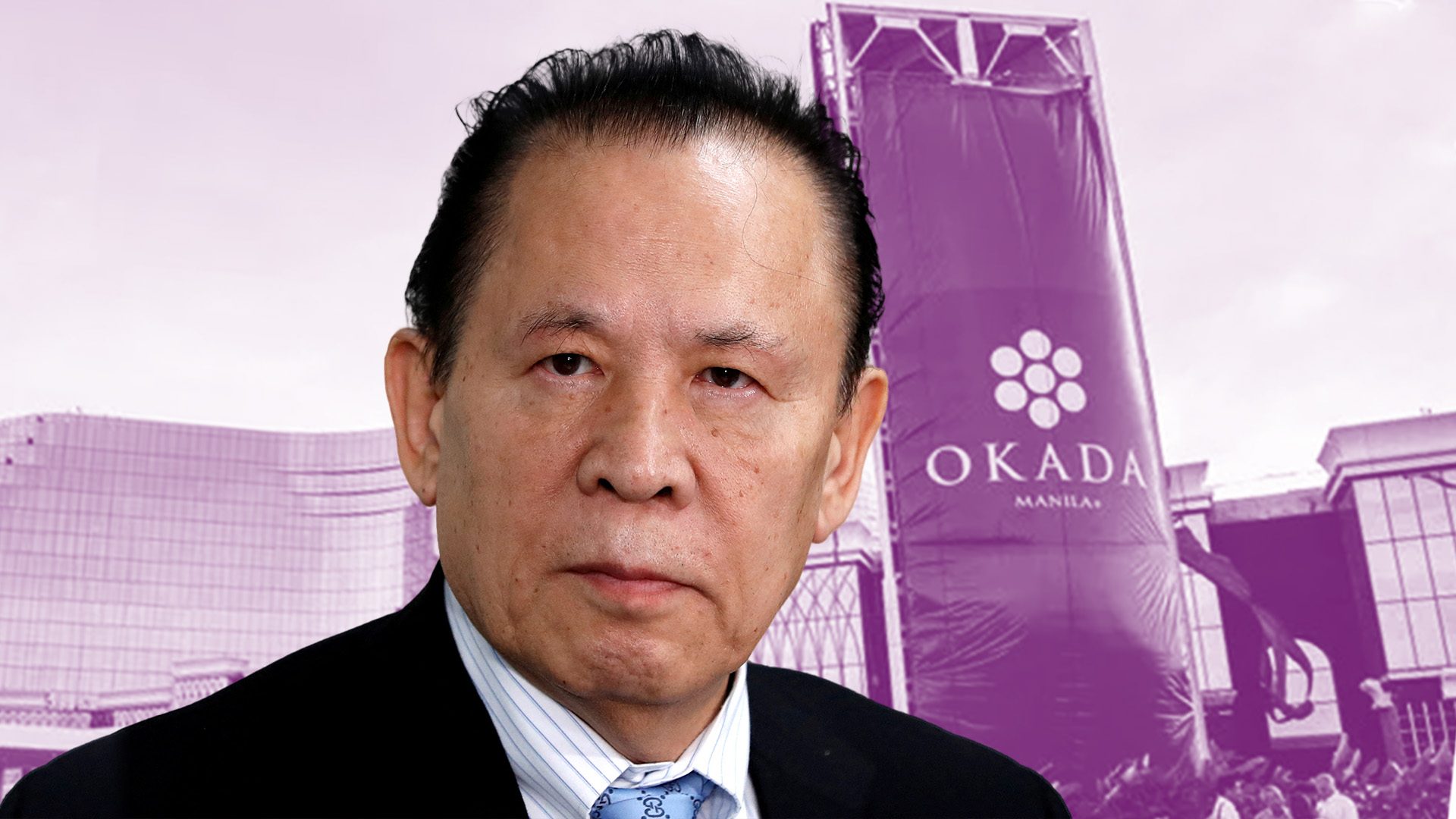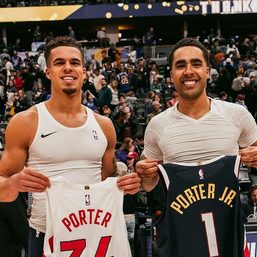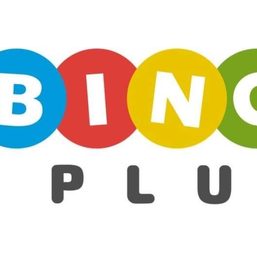SUMMARY
This is AI generated summarization, which may have errors. For context, always refer to the full article.

At a glance
- The deposed board members of Okada Manila are still talking to investors about taking the company public on the Nasdaq, giving them both financial and legal hold on the property. They are also likely to rebrand the luxury casino resort, erasing Kazuo Okada’s stamp.
- The tug of war in the boardroom comes as the gaming industry recovers from the pandemic. Gamblers are also looking at areas outside Macau, as China tightens its grip on the island.
- The legal fiasco puts a spotlight on regulators and may set the tone for how business is done in the Philippines.
MANILA, Philippines – High rollers and casual slot machine gamers have started to place bets at Okada Manila again after over two years of COVID-19 lockdowns, which forced the posh casino resort to shut its doors. This confirms experts’ outlook of revenge spending in the leisure sector.
But while lady luck has gone about bankrolling the returning clientele, Okada Manila’s boardroom can’t keep a poker face.
On May 31, Kazuo Okada, through his legal team, along with private security and police forces, stormed the premises of the luxury property to reclaim it. It had been over four years since he was booted out by no less than his estranged wife, children, and business partners.
The now-deposed board called it a “violent takeover,” while Okada’s team described it as a “peaceful” transfer despite dramatic videos showing people getting shoved and yelled at, and at one point, power getting cut off during an emergency board meeting.
Nearly a week after the hostile takeover – or transition, depending on who you’re talking to – Okada addressed employees through a video, assuring them that it would be business as usual. They will be able to keep their jobs despite the legal showdown, he said.
“People here call him ‘Daddy O,’ and they missed him very much. When he was here, people ask for a selfie and he will willingly agree,” said Vincent Lim, assistant vice president of Okada Manila, in an exclusive sit-down interview with Rappler.
While Okada’s team paints the 79-year-old as a charismatic billionaire, the cases that are piling up against him depict him as a man who misused funds of the gaming empire bearing his name.
Okada is now slugging it out with his erstwhile business partners, who are likely to change the name of the casino resort and erase the tycoon’s stamp on it.
Billions at stake
The Japanese billionaire is fighting to stay in control of the 42-hectare Okada Manila, Manila’s largest integrated resort and casino development.
It took seven years and around $3 billion to build Okada Manila. It has the largest gaming floor in the Philippines and is among the largest in the world at 34,950 square meters.
Before the pandemic struck, Okada Manila’s gross revenue stood at $849 million or P45.29 billion, while adjusted EBITDA (earnings before interest, taxes, depreciation, and amortization) was at $137 million or P7.3 billion.
Okada Manila stands to earn more, as it has yet to open at full operating capacity in 2022. The figures in 2019 were posted when the gaming resort was operating at less than 60% capacity.
The casino resort is strategically located in the heart of Entertainment City in Parañaque City, just 10 minutes away from the airport. Entertainment City is also the home of Solaire Resort and City of Dreams Manila, while Resorts World is in close proximity.
Entertainment City rivals Las Vegas in terms of gross gaming revenues. Okada Manila's operator, Tiger Resort, Leisure and Entertainment Incorporated (TRLEI), estimates that it would gobble up over 34% of market share once the gaming industry fully recovers in 2023.
Other than casinos and hotels, the development boasts 10,000 square meters of retail space, which includes events place and nightclub Cove Manila, The Garden, and an iconic multicolor dancing fountain.
Approximately 9 million people visited Okada Manila in 2019, and the clientele look set to return as COVID-19 restrictions ease further globally.
Going public and a rebranding
Okada Manila’s valuation is based on the documents of 26 Capital Acquisition Corporation, a Miami-based special purpose acquisition company that is set to merge with Okada Manila to form Universal Entertainment Resorts Incorporated (UERI), shares of which would be listed on the Nasdaq.
The initial public offering (IPO) is expected to channel up to $275 million worth of fresh funds into the gaming resort.
The deal pegs Okada Manila at a discount of $2.6 billion in enterprise value, lower than the $3.3-billion replacement value for the property.
Jason Ader, the Miami-based investor behind 26 Capital, said the merger would push through despite the tug of war in the boardroom.
Ader and the deposed board would benefit not just financially from the IPO – it would also provide them with a legal shield.
“This is clearly intended by Okada to stop our IPO. The merger will create the biggest Philippine public company in the US. There will be no bigger public company on Nasdaq or the New York Stock Exchange. It will even be bigger than when PLDT was listed in the US. This is a very exciting event that I am proud to be a part of and we’re not gonna let Kazuo Okada and his sham board try to stop it,” Ader told Rappler in a virtual interview.
“They’d like to stop it because, when that happens, we will have the US capital market behind us and I think we’ll be virtually impenetrable thereafter,” he added.
Ader said American investors find the IPO attractive, as debt would be spun off. Investors are also looking at the Philippines' potential to best Macau in the gaming space, as the island faces a crackdown by Beijing.
“In order to make this investment as attractive as possible to the US investors, Universal itself does have indebtedness, but this asset will be spun off in a merger, but with a limited debt overall,” he said.
While Ader is confident that the deal would happen in 2022, the fiasco has led to the companies pushing back the listing from June 30 to September 30.
“We do believe that Universal [Entertainment] will be back in control of Okada Manila soon. We have great lawyers that represent us,” Ader said confidently, despite Rappler pointing out the optics of the legal issues to prospective investors.
“Once Universal resolves this issue with Kazuo Okada and the sham board, it would be my strong recommendation to change the name of Okada Manila.”
Once Universal resolves this issue with Kazuo Okada and the sham board, it would be my strong recommendation to change the name of Okada Manila.
JASON ADER, 26 CAPITAL ACQUISITION CORPORATION
Why Okada was booted out
Okada’s removal from the luxury casino stems from allegations of fund misuse.
In August 2017, Okada Manila’s board, alongside its parent companies, lodged an investigation and found that the tycoon ordered Tiger Resort Asia Limited (TRAL) to extend a loan of HK$135 million to a company called Goodluck Tech for purposes of repaying a loan extended by Okada Holdings Limited, a company owned by Okada and his family.
The loan was recorded as an account receivable on TRAL’s balance sheet.
Okada also ordered TRAL to issue a check worth HK$16 million supposedly for his personal benefit, which was recorded as a receivable on TRAL’s balance sheet.
Another case involves a loan by Okada Holdings, where Okada allegedly used a wholly-owned Universal Entertainment Corporation (UEC) subsidiary – named Universal Entertainment Korea – to create security interest for an $80-million financing deal for Okada Holdings, without complying with internal procedures.
Okada was then booted out of the casino resort named after him and was ordered to pay damages.
Okada fired back, filing theft and estafa charges against UEC for allegedly conspiring to remove him from the company. The case was lodged in a Parañaque City court.
Included in the case were his son Tomohiro Okada, estranged wife Takako Okada, UEC president Jun Fujimoto, and several other officials.
Interestingly, Okada included Antonio “Tonyboy” Cojuangco in the case, but has now installed him as president of Okada Manila after the physical takeover.
Legal fiasco
With the legal showdown, fundraising plans, and a slowly recovering gambling industry, the investing public and even gambling whales are probably asking: Who owns Okada Manila now?
Here is the tricky web of corporate ownership.
- Okada Manila is operated by TRLEI. Its parent company is TRAL.
- TRAL is owned by UEC, which is a publicly listed company in Japan.
- UEC's majority shareholder is Okada Holdings Limited (OHL).
- OHL’s majority shareholder is Tomohiro Okada, son of Kazuo. Tomohiro owns 53.47% of OHL, while Kazuo owns 46.55%.

Okada’s legal team and security detail barged into Okada Manila to assert his reinstatement based on a status quo ante order (SQAO) from the Supreme Court (SC).
The order states: “NOW, THEREFORE, effective immediately and continuing until further orders from this Court, You, petitioner and respondents, your agents, representatives, or persons acting in your place or stead, are hereby required to observe the status quo prevailing prior to petitioner’s removal as stockholder, director, chairman, and CEO of Tiger Resort Leisure and Entertainment, Inc. (TRLEI) in 2017.”
The ponente of the decision was SC Associate Justice Ramon Hernando, the acting chair of the High Court’s 2nd Division. It was issued last April 27. Okada’s personnel took physical control of the property on May 31.
Six days after Okada’s camp took over the casino resort, the deposed TRLEI board organized a press conference.
After filing kidnapping and unjust vexation complaints with the Department of Justice (DOJ), TRLEI's legal team headed by Estrella Elamparo met business reporters at the Sofitel Philippine Plaza Manila for lunch.
There, Elamparo, alongside Michiaki Satate, a director of the old TRLEI board, insisted that the Japanese gaming tycoon “perverted” the SC’s SQAO.
Elamparo said the SQAO neither gave Okada power to install a new set of directors and officers nor the ability to physically take over the Okada Manila premises.
She went on to add that Okada filed a manifestation with extremely urgent omnibus motion last May 4, which asked that he be granted access to the TRLEI office and Okada Manila. The SC has yet to act on this motion.
“Certainly, Kazuo Okada would not have filed said motion if he did not deem another court order necessary,” Elamparo said.
Another matter that further complicates the legalities of Okada Manila’s ownership is its numerous corporate layers and parent companies.
Elamparo said Okada can no longer assert chairmanship because he owns just one share. TRAL, a Hong Kong-based company, owns 99.99% of TRLEI.
Takako Okada, the estranged wife of Kazuo, said in a recording that her husband’s takeover was illegal.
“We at Tiger Resort Asia Limited never recognized the group of Mr. Tonyboy Cojuangco and we condemn violent acts that happened in Okada Manila…. I am hopeful that the Philippine government will not allow such dangerous acts. I fear situations like this will not create a friendly environment for foreign investors,” Takako said.
But the new board of TRLEI has a different story. Lim said TRAL is represented by Kazuo and does not recognize Takako’s claim. They also do not recognize UEC as a parent company.
“They (UEC) are no longer the parent company. So the parent company of TRLEI is TRAL, and it is also solely owned or represented by chairman Okada,” Lim said, citing only the SQAO as basis of the claim.
When asked about Takako’s claim over TRAL, Lim declined to comment.
“We will not comment further because this is a family issue and is out of the business discourse, so we can only comment on the business,” he said.
But with only one share undisputedly his own, can Okada claim chairmanship?
For the deposed board, Okada does not have the authority. Lim, however, asserted that other than the single share, the Japanese billionaire supposedly has control of TRAL.
Lim also addressed the claims of violence and complaints filed by the deposed board.
Specifically, he denied the claims of UEC director Hajime Tokuda, who claimed that he was “manhandled” out of Okada Manila and taken to an unknown car before being dropped off at his residence.
“Inside the car, there were two security guards beside me. I felt like I was a criminal surrounded by officers – just like in TV. I didn’t know where they would bring me. They were talking, but because I cannot speak English very well, I did not understand them,” Tokuda had said.
But according to Lim, Tokuda was “sent home by his own driver, the same driver that sent him home every single day.”
Implications
Observers in both the business and legal communities agree that this multibillion-dollar case would have huge implications on how business is done in the Philippines.
The case also puts focus on the gaming industry regulator, the Philippine Amusement and Gaming Corporation (Pagcor).
Pagcor said it remains “neutral” over the incident.
“Pagcor emphasized its neutrality in the intra-corporate dispute in [TRLEI], in light of news reports accusing the regulator that it is biased in favor of the group of Mr. Kazuo Okada. Pagcor has only recognized and will only recognize the orders of the Supreme Court and will exercise its authority as regulator without violating or disrupting the SQAO and other orders issued by the Supreme Court,” the agency said in a statement.
But some lawyers believe that Pagcor has chosen Okada’s side by recognizing his interpretation of the SQAO.
Curious observers also want to know when exactly Okada and Cojuangco buried the hatchet.
When the DOJ indicted Okada for alleged embezzlement in 2018, Cojuangco was quick to release a statement.
“The DOJ decision brings us one step closer to disentangling the shareholder disputes in the Okada group, hence allowing the company to run its business with utmost efficiency,” Cojuangco said in a story by the Philippine Star.
Okada likewise included Cojuangco in his countersuits.
Now, the two businessmen are working together.
“It's a business deal at the end of the day. There are good days and bad days…and I think they aligned their vision and goals now to want to come back to make Okada better, to achieve better heights. But I can’t comment on the relationship further because I'm not related to them,” Lim told Rappler.
Interested investors are now also wondering how the Okada family's squabbles would impact the business.
Okada's wife and son have teamed up in trying to keep the patriarch away from their empire.
"Ultimately, I want my son to carry on my business. But it’s unfortunate that my son is not following the path I would wish him to. I don’t know why, but for reasons unknown to me, it seems Tomohiro is closer to Mr. Fujimoto (UEC president) than me; either he (Tomohiro) is close to him (Fujimoto) or he believes what he says," Okada told GGR Asia in 2018.
Okada is supported by his daughter, Hiromi. She claimed she was "tricked" into helping oust her father from the board.
"Hiromi is here with me and understands the situation,” Okada said.
So far, Okada Manila, under the leadership of "Daddy O," is busy hosting various pageants and preparing to reopen its iconic fountain to give the property a much-needed facelift. But behind the gleaming facade, the messy corporate dispute drags on. – Rappler.com
Add a comment
How does this make you feel?

![[Vantage Point] China’s silent invasion of the Philippines](https://www.rappler.com/tachyon/2024/07/TL-china-silent-invasion-july-16-2024.jpg?resize=257%2C257&crop=318px%2C0px%2C720px%2C720px)


![[Vantage Point] POGOs, the quintessential milking cow](https://www.rappler.com/tachyon/2024/03/pogo-quintessential-milking-cow-march-23-2024.jpg?resize=257%2C257&crop=431px%2C0px%2C1080px%2C1080px)

There are no comments yet. Add your comment to start the conversation.